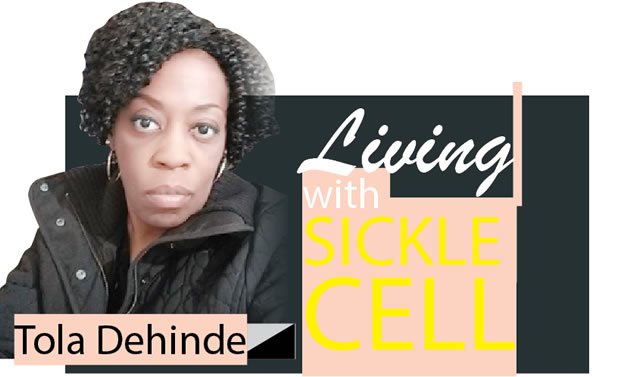
Last week, I started the above topic by Dr J Anderson, a registered psychologist attached to the sickle cell team at the hospital I attend. I approached him to write about sickle cell and psychology, in line with his work when seeing sickle cell patients.
One of the problems with sickle cell is that the main reason people go to hospital is because they feel pain. But the pain is invisible, and there isn’t a detectable injury to explain the pain. In addition, the medications we often use to treat sickle pain, drugs like morphine, carry with them intense stigma. It is easy for doctors and nurses to imagine that the sickle cell patient who comes to hospital regularly asking for morphine might not really be in pain but is instead just looking for drugs. The vast majority of people with sickle cell are not drug addicts. But in my experience, every sickle cell patient has felt they are being treated like one.
It can be difficult to maintain a good relationship between patients and providers, especially when there is a life-long illness. There is no pay-off for either side—at no point can the patient say to the doctor, “Well this is great. Thanks to you I don’t have sickle cell anymore!” and the lack of tangible success breeds resentment. In this situation, the psychologist is a little bit like a marriage counsellor, giving people a place to talk about frustrations, providing some techniques for listening, expressing opinion, and understanding others, and offering a path for rebuilding trust and repairing a damaged relationship, if that is what each side wants.
Sickle cell and stress
A good way to deal with the symptoms of a life-long illness is to do things to prevent the symptoms from happening in the first place. This means figuring out what might be triggering symptoms and doing something to minimise it. People with sickle cell do this all the time: sickle crises are caused by cold, dehydration and infection, so they need to stay warm, drink lots of water and take penicillin.
Many things trigger a sickle crisis. One of these is stress. What do I mean by stress? Stress is a word that we use in many different ways. Sometimes, by stress people mean the thing that is causing us strain or damage (we call that thing the stressor). Other times by stress we mean the feeling itself of strain or being uncomfortable, so meaning our reaction to the stressor.
When psychologists talk about stress, what we mean is known as the stress response, also called the “fight-or-flight” response. The idea here is that we are always on the lookout for demands, threat or danger. Our brains are always trying to figure out what is coming next and to prepare us for it. When faced with some sort of demand, physical changes take place in the body. These changes help us cope with the demand. For example, if I start to run, I am placing a demand on my body. I need lots of blood and oxygen circulating to my muscles, so my heart starts beating faster, my blood pressure goes up, and I start breathing heavily. Although this is a kind of stress, it is actually healthy.
There is a kind of stress that is harmful, and probably contributes to sickle cell pain. Unfortunately, it is the most common source of stress and that is the negative emotional stressors that come from our relationships with other people. Getting robbed is awful but (assuming you survive) the stress is short-term. It might last just a few minutes. But after that, you are safe and the stressor is gone. Compare this to the way you feel after an argument with your spouse or your boss, being stuck in traffic every day, doing a job you hate, or the constant worry leading up to a major life event like a wedding or moving house. That kind of strain can last for hours, even days or weeks.
The problem is that your body responds to that kind of mental or emotional stress the same way it does as if you were being physically attacked. Imagine the last time you had a fight with your spouse—you might have fumed for days, reliving the memory over and over, rehearsing what was said or what you wished you would have said or done. When you do this, one of the things that happens is that your body releases chemicals that narrow your blood vessels and make them a little sticky. This is perfectly fine if you need your blood pressure up to fight off an attacker but left for too long as you re-imagine the event over and over in your head, this probably causes long-term harm, and for people with sickle cell, may be one thing that triggers a sickle crisis.
So, you might say, I guess that means that it’s up to other people to not stress me out if I have sickle cell so I don’t have a crisis? Hmmm. It would be nice if we lived in a world where you could be confident that no one would ever do anything to cause you stress. It would be nice if no one ever disagreed with you, everyone always thought about your needs and was unfailingly courteous. It would be wonderful if everyone always had enough so no one has to go without, tragedy never strikes, the wicked are punished and the righteous are rewarded.
But we do not live in that world. There is no such thing as a stress-free life. Bad things are bound to happen and if you insist that others are responsible for your wellbeing, you give them control over your wellbeing. You are bound to be disappointed. You cannot control what others do, but you can control what you do. So, if you find stress to be triggering your pain, you need to manage your stress. That means making changes in what you do and how you think, responding better when faced with a stressor, and sometimes just practising calmness. A psychologist can help you do that.
If you would like to get in touch with me about this article or about sickle cell, do so, via email: [email protected] And do checkout my blog: https://www.dailylivingwithsicklecell.com/ My book on sickle cell – How To Live with Sickle Cell and my other books are available for purchase on www.amazon.com





